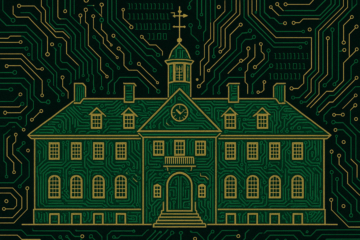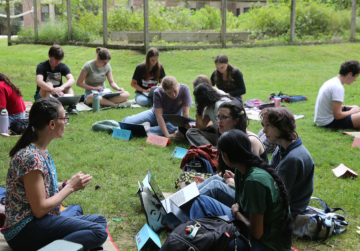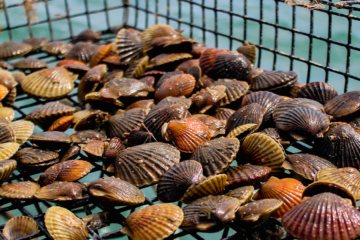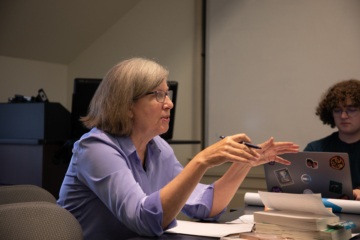New minor in artificial intelligence available for all W&M undergraduates
The following story originally appeared on the website for W&M’s School of Computing, Data Sciences and Physics. – Ed.
William & Mary has officially launched a new minor in artificial intelligence (AI), giving students the tools to apply AI in their respective fields.
Offered through the School of Computing, Data Sciences & Physics, the AI minor emphasizes not just technical skills, but also ethical responsibility and broad, interdisciplinary applications.
“AI is no longer just for computer scientists, it’s transforming art, history, law, business – practically every discipline,” said Doug Schmidt, dean of the School of Computing, Data Sciences & Physics. “The minor is designed to complement any major at William & Mary, giving students the fluency to apply AI in their own disciplines while bringing in perspectives on ethics, culture, and human impact that technical fields desperately need.”
The curriculum is designed to provide both hands-on experience with AI systems and the critical tools to question how those systems should be used. Lessons on privacy, equity and the broader impact of AI are woven into every course, providing students with problem-solving skills, exposure to real-world applications and insight into AI’s strengths and limitations.
Tucker Peters ’28, a finance major and president of the W&M AI Club, understands the importance of students learning how to apply AI, regardless of their major.
“The AI minor gives undergraduates the chance to pair William & Mary’s historic liberal arts education with the cutting edge of technology, preparing them to lead and innovate in their fields,” said Peters.
As the field of AI is rapidly evolving, the program was built with adaptability at its core. Faculty will continuously refresh course content to reflect the latest tools and practices, while students will develop the resilience and flexibility to navigate a landscape where innovation is constant.
Foundation for things to come
Schmidt described the minor in AI as a foundation for future academic pathways, including potential B.A. and B.S. degrees in AI as well as graduate-level programs. The aim, he said, is to create multiple avenues for students to gain fluency in AI and apply it across a wide range of careers.
“Graduates of these programs won’t just be prepared to work in AI-driven industries, they will be prepared to lead, question and innovate in ways only William & Mary graduates can,” said Schmidt.
To learn more about the new minor in AI check out https://cdsp.wm.edu/about/ai/ or email cdsp-ai@wm.edu.
Latest W&M News
- Ibes leads Sharpe Scholars outdoors, into communitiesNow in its third year, ENSP 100 takes on the idea and practice of learning outside the classroom.
- Award-winning journalist Asma Khalid to deliver fall 2025 Atwater LectureKhalid will deliver Alma Mater Production’s Fall 2025 Atwater Lecture on Oct. 14 at Sadler Center’s Commonwealth Auditorium.
- ‘Here Comes the Sun’: Tack Faculty Lecture to explore the science of building a star on EarthPhysics Professor Saskia Mordijck will present the fall 2025 Tack Faculty Lecture, “Here Comes the Sun: Building a Star on Earth.”
- Bay scallops surge on the Eastern ShoreOnce locally extinct, the Virginia bay scallop population is increasing exponentially due to restoration work by W&M’s Batten School & VIMS Eastern Shore Laboratory.
- Highland celebrates 50 years of W&M stewardship, aims to expand its scholarly impactIn honor of the anniversary, Highland is conducting a lecture series highlighting its recent high-impact projects and the many perspectives that have shaped them.
- Holladay named inaugural Sharp Writer-in-ResidenceHilary Holladay M.A. '87 is the Charles Center’s inaugural Sharp Writer-in-Residence.













